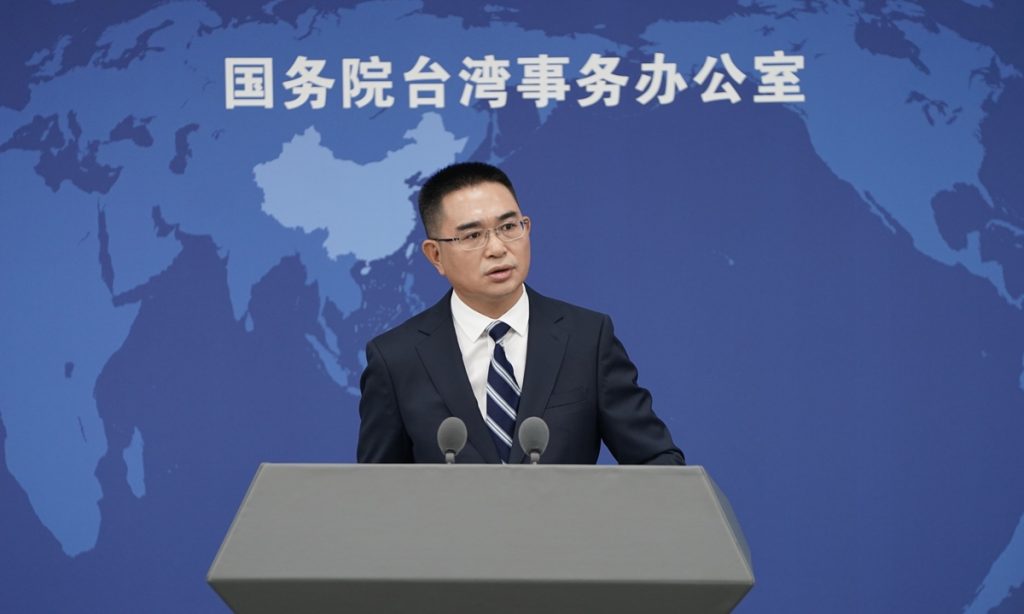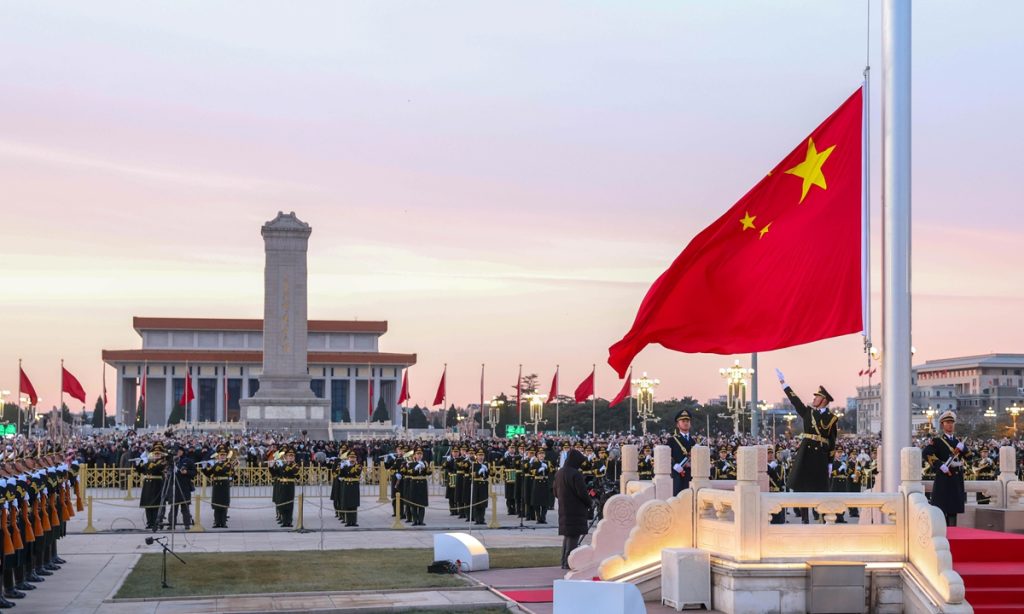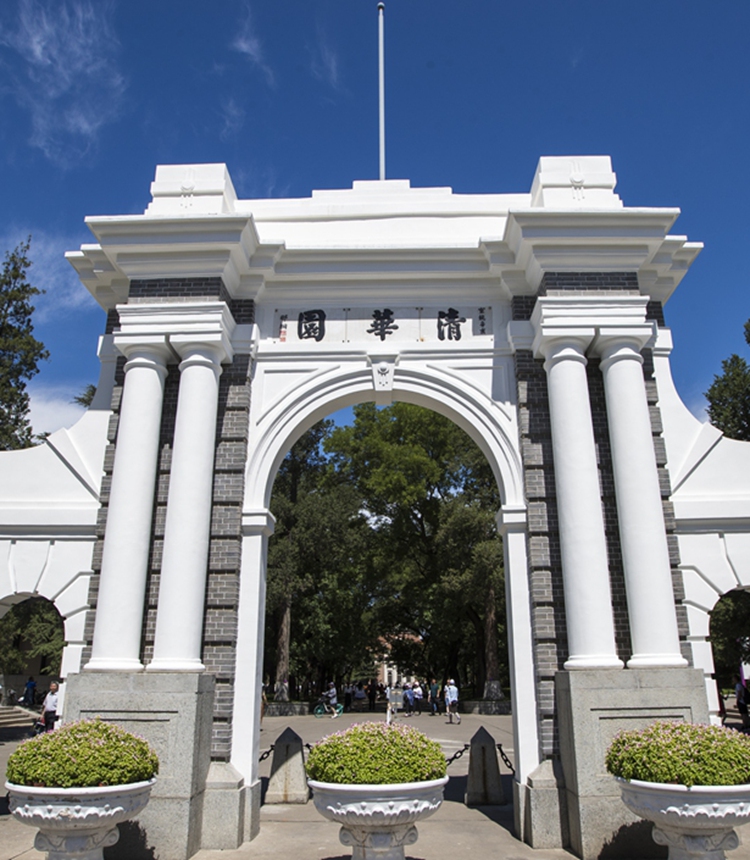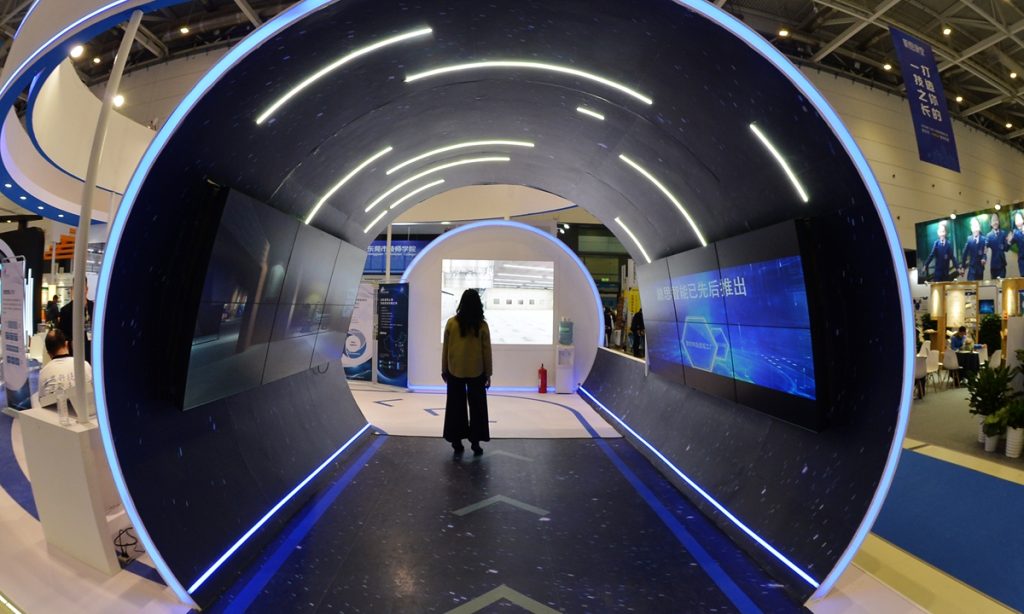Editor's Note:
"Cognitive Warfare" has become a new form of confrontation between states, and a new security threat. With new technological means, it sets agendas and spreads disinformation, to change people's perceptions and thus alter their self-identity. Launching cognitive warfare against China is an important means for Western anti-China forces to attack and discredit the country.
Some politicians and media outlets have publicly smeared China's image by propagating false narratives in an attempt to incite and provoke dissatisfaction with China among people in certain countries. These means all serve the US strategy to contain China's rise and maintain its hegemony. The Global Times is publishing a series of articles to reveal the intrigues of the US and its allies' China-targeted cognitive warfare and expose its lies and vicious intentions.
In the 16th installment of the series, the Global Times examines a new angle in the West's smear campaign against China: Archaeology. Through analysis of recent stories by Western media outlets that defame China's archaeological field and the viewpoints of front-line Chinese archaeologists in Central Asia and Xinjiang Uygur Autonomous Region, this installment aims to expose the absurd narrative that politicizes and stigmatizes China's archaeological efforts in Silk Road-related areas, as well as the long-standing Western biases against Chinese archaeology.
For decades, some people in the West have been slandering against China under guises like "trade" "security" and "human rights," regardless of how baseless and false their claims may be.
And now, these malicious storytellers have stretched their evil hands to a new field - archeology.
In recent months, articles from mainstream Western media outlets were discovered to be sensationalizing the "politicization" and "weaponization" of Chinese archaeology, viciously depicting China's archaeological work in its Xinjiang Uygur Autonomous Region or overseas as part of efforts to serve the country's political propaganda, aid in sovereignty claims, or intensify international political competition.
Such move aim to taint pure academic field through disinformation against China. This is a new form of cognitive warfare campaign targeting China, warned Jia Chunyang, executive director of the Center for Economic and Social Security Studies at the China Institutes of Contemporary International Relations.
"By challenging China's historical academic research on Silk Roads, they (some Western media outlets) are attempting to deny China's history and current policy propositions in this area," Jia told the Global Times. "This intention is extremely malicious."
'No moral bottom line'
One of the latest stories to anger the Chinese archaeological community was a bilingual piece by the Wall Street Journal (WSJ) published in late July.
"The country's archaeologists are striking out along the Silk Road(s) to trace the reach of ancient Chinese civilization, disputing long-held beliefs," the story wrote in its deck. It mainly introduced one of China's major overseas Silk Road archaeological works in Uzbekistan, the discovery of the ruins of Greater Yuezhi (an ancient nomadic kingdom) led by archaeologist Wang Jianxin, a leading figure in China's research on ancient civilizations in Central Asia.
However, the story gave a strange interpretation of the work conducted by Wang's team, stating that China's overseas archaeological efforts are probably in aid of its geopolitics claims or for the sake of "disputed" territories.
Although in this article, Wang refuted the question of "whether Beijing could use the Yuezhi to make territorial claims" and dismissed the notion as "absurd." Nonetheless, the author still insidiously hinted at a nonexistent connection between Wang's Yuezhi archaeological work in Uzbekistan, and China's influence in the country through its Belt and Road Initiative (BRI) projects there. "…there are concerns that China will simply be the newest great power to impose itself on the region," it wrote.
In interviews with Chinese scholars, a few Western media personnel attempt to dig "traps" and later deliberately distort and misinterpret the interviewees' views in their stories, as proof of the "fact," Jia pointed out.
"This shows that some people in the West have spared no effort in order to discredit China," Jia told the Global Times. "They have no moral bottom line."
Lothar von Falkenhausen, a professor at the Cotsen Institute of Archaeology at the University of California, Los Angeles, was quoted in the story as well. "He looked at things differently and is now helping others see things differently and make new discoveries," Falkenhausen told the WSJ.
Falkenhausen later wrote to the Global Times, noting that the journalists writing for the WSJ might have misrepresented the importance of the archaeological dimension of the subject.
But the academic expert, who specializes in archaeology, said on WeChat that he does not blame the journalists for potentially misunderstanding the depth of the archaeological subject matter. "They are experts in something else - politics," he remarked, emphasizing his own focus on the academic and collaborative aspects of the research.
Who weaponizes archaeology?
In recent years, China has stepped up its archaeological efforts along the overland and maritime Silk Roads both at home and abroad.
In its Northwest Xinjiang Uygur Autonomous Region, it discovered excavation sites reflecting ancient political power and a rare offshoot of a Christian sect, and that was among the top six new archaeological discoveries in China in 2023. Chinese archaeologists have also been to regions including the South China Sea, Central Asia, and Africa, to explore the ties between the Chinese civilization and crucial moments in world history. China has also enhanced international cooperation in this field.
However, some Western media outlets continue to depict China's Silk Roads archaeological work as a BRI "accessory," or a tool to serve its "political and governing purposes."
In a bombastic article titled "China is using archaeology as a weapon" on July 11, The Economist accused China of "unearthing ancient justifications for its rule over Xinjiang." Without rhyme or reason, the story claimed that Chinese archaeologists' discovery of Mo'er Temple ruins in Kashi, Xinjiang - the earliest large-scale, earthen-structured, ground-level Buddhist temple site in the westernmost part of China - was being used by the Chinese government "to justify its brutal rule over Xinjiang."
This story was replete with offensive lies. It tenuously linked an archaeological achievement in Xinjiang to the West's favorite groundless accusations of "brutal rule" or "cultural genocide," and tried to mislead its readers by claiming that solid historical evidence "hardly means Xinjiang was culturally or politically part of China" by citing one-sided views of a Georgetown University scholar.
It was an incredibly far-fetched, amateurish, and biased article, archaeology insiders said. Chen Ling, a professor at the School of Archaeology and Museology, at Peking University, emphasizes that Xinjiang has been an integral part of China since ancient times.
Chen points out that the cultural orientation of this area has always been toward the East due to geographical conditions, even before the establishment of modern states and civilizations, which can be proven by recent archaeological discoveries.
It is these Western media outlets that are "using academia as a political tool," Chen told the Global Times.
Similarly, when China announced a deep-sea excavation plan in June 2023, which involved more than 900 pieces of cultural relics being retrieved from two ancient shipwrecks discovered in the South China Sea, The Economist claimed in a subsequent article that China's underwater archaeology "has military and strategic uses," and it serves the country's maritime territorial claims.
It is clearly to see that it is not China, but entities in the West, that is trying to "weaponize" archaeology.
"Their goal is to give the international community the false impression that the Xinjiang region, Central Asia, and some areas along the Silk Roads have little historical connection to China, so as to slander China for 'falsifying' history," said Jia.
"By denying China's history, they deny China's current policies based on said history," Jia noted.
Two-way interaction
The fact is that China is making significant achievements in archaeology along the Silk Roads, with increasingly close connections and collaborations with relevant countries and regions.
In April 2023, the Collaborative Research Center for Archaeology of the Silk Roads was established in Xi'an, Southwest China's Shaanxi Province, an outcome of the second China + Central Asia (C+C5) foreign ministers' meeting in May 2021.
Wang, chief scientist at the center, has repeatedly stressed the importance of including an "Eastern perspective" in Silk Road archaeological work. "The concept [of the Silk Road] was initiated by Western academia, so a majority of research focuses on how the West influenced others," Wang told the Global Times in a previous interview in October 2022. "We do overseas research like this to change these centralized interpretations and contribute to the comprehensive study of the Silk Road."
Chen criticizes the West's tendency to promote a monolithic viewpoint, stating that the world is moving toward diversity, not away from it.
"Now the West does not want to allow the East to propose a global perspective, and such move is an attempt to rule the world with a single narrative, replacing the diversity of the world with a single value system," he said.
As one of the Chinese archaeologists participating in the earlier joint archaeology project between China and Uzbekistan, Chen believes that understanding human civilization requires the accumulation of knowledge from various points, and only when these points converge can we accurately present the tapestry of world history.
He told the Global Times that this ancient network of trade routes, stretching from China to the Mediterranean, is not merely a historical artifact, but a living testament to the fluid exchange of cultures, goods, and ideas that have shaped our world.
"Cultural exchange is no longer a one-way street, but a two-way interaction," noted Chen. "China respects the political systems and religious beliefs that align with the unique cultural characteristics of each country, promoting mutual learning and breaking the old world cultural order dominated by the so-called 'universal values' that Western countries force other countries to follow."







